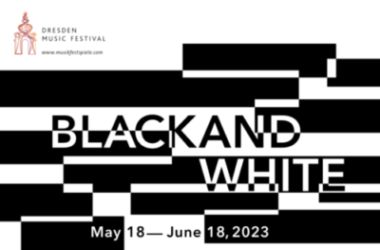
 Germany Dresden Music Festival 2023 [15] – 14.6.2023, Kulturpalast, Dresden: Soloists, Dresden Festival Orchestra and Concerto Köln / Kent Nagano (conductor). (LV)
Germany Dresden Music Festival 2023 [15] – 14.6.2023, Kulturpalast, Dresden: Soloists, Dresden Festival Orchestra and Concerto Köln / Kent Nagano (conductor). (LV)

Wagner – Das Rheingold
Production:
Artistic directors – Kent Nagano and Jan Vogler
Musical Study director – Volker Krafft
Musicological curator – Kai Hinrich Müller
Cast:
Wotan – Derek Welton
Donner – Dominik Köninger
Loge – Mauro Peter
Froh – Tansel Akzeybek
Fricka – Katrin Wundsam
Freia – Nadja Mchantaf
Erda – Gerhild Romberger
Alberich – Daniel Schmutzhard
Mime – Thomas Ebenstein
Fasolt – Tijl Faveyts
Fafner – Tilmann Rönnebeck
Woglinde – Ania Vegry
Wellgunde – Ida Aldrian
Flosshilde – Eva Vogel
I first heard the period-instrument Dresden Festival Orchestra transform conventional notions of what German Romantic music was about in two concerts at the 2019 International Classical Music Festival in Bogotá. It was like hearing the Dutch early music pioneers play the great Bach Passions for the first time. The way their presumably authentic tempos, nuances, colors, dynamics and pulse were so closely related to the sounds of the instruments themselves gave the music a natural, organic flow. It wasn’t until this year that I heard them again, first at their 7 June concert of Schubert and Brahms conducted by Ivor Bolton, and then on 14 June in Das Rheingold conducted by Kent Nagano. The Schubert was magnificent, the Brahms was saddled with an inadequate period piano, and the Rheingold sparkled and shone with musical gold.

Devoid of costumes and limited to minimal stage movements, exits and entrances, the singers were able to create more finely etched if less entertaining characterizations than they might have done if all dressed up and ready to kill. The singing was more finely drawn and appropriately matched to similar qualities in the orchestral forces. Derek Welton’s commanding Wotan and, in particular, Mauro Peter’s dynamic Loge dominated the proceedings. Daniel Schmutzhard’s Alberich made it clear that he was no mere dwarf, musically speaking, while Thomas Ebenstein’s Mime struggled to be included in the conversation. Tijl Faveyts and Tilmann Rönnebeck were engagingly human and physically powerful giants, while Dominik Köninger’s Donner and Tansel Akzeybek’s Froh held their own.
Katrin Wundsam’s Fricka was by far the most engagingly human of the gods in both her singing and acting, although she was made to stand behind Wotan throughout the whole evening which may have had symbolic significance but gave the performance an oddly anti-feminist cast. From the rear balcony, Gerhild Romberger’s stentorian Erda almost stole the show, while Nadja Mchantaf’s Freia sang as beautifully as she could while seeming a little too deeply depressed. The trio of Rhinemaidens were less distinctive in their characterizations than they might have been, but they sang with healthy abandon and worked well as a team.
The Dresden Festival Orchestra was joined in this ambitious enterprise by Concerto Köln (who inspired this project in 2021); their combined 54 strings were led by such stars of the period instrument scene as concertmaster Alexander Janiczek and principal cellist Werner Matzke. Three of the seven double basses were arrayed on the right, four on the left, and the sense of sumptuous clarity in the low strings, especially from the ten virtuoso cellos, was unusually rich and detailed, When the brass with five Wagner tubas and the low strings got it together, they created an awesome dark force, while the seven harpists were particularly delicate and transparent. Being brought up on Decca’s groundbreaking Ring under Georg Solti in which Donner’s hammer summoning the thunderstorm was an anvil strike that was used to test – and sometimes destroy – sound systems of the time, the presumably authentic and massive wooden mallet wielded by the percussionist looked more like the kind used for ring-the-bell carnival games, but it produced a great thumping noise that got the job done.
Kent Nagano, at the helm of this highly literate production, listened to the wonderful orchestral forces as much as he conducted them, which seemed to make the singers comfortable and compensated, to a large extent, for its not being staged, although the story and action are generally less persuasive this way. Rheingold will tour to the Lucerne Festival and Cologne this August; next year it will be Die Walküre. And when the cycle is completed, presumably as soon as 2026, it will be toured, possibly to New York.
‘Imagine’, Jan Vogler had said to me earlier this year, ‘playing the whole Ring on original instruments!’ And when I asked about the possibility of a period staging, Vogler admitted: ‘I don’t know where we’ll end up. It’s a journey. For now, it’s not going to be period staged, but at some point we will think about that too’. That would be something!
Laurence Vittes
